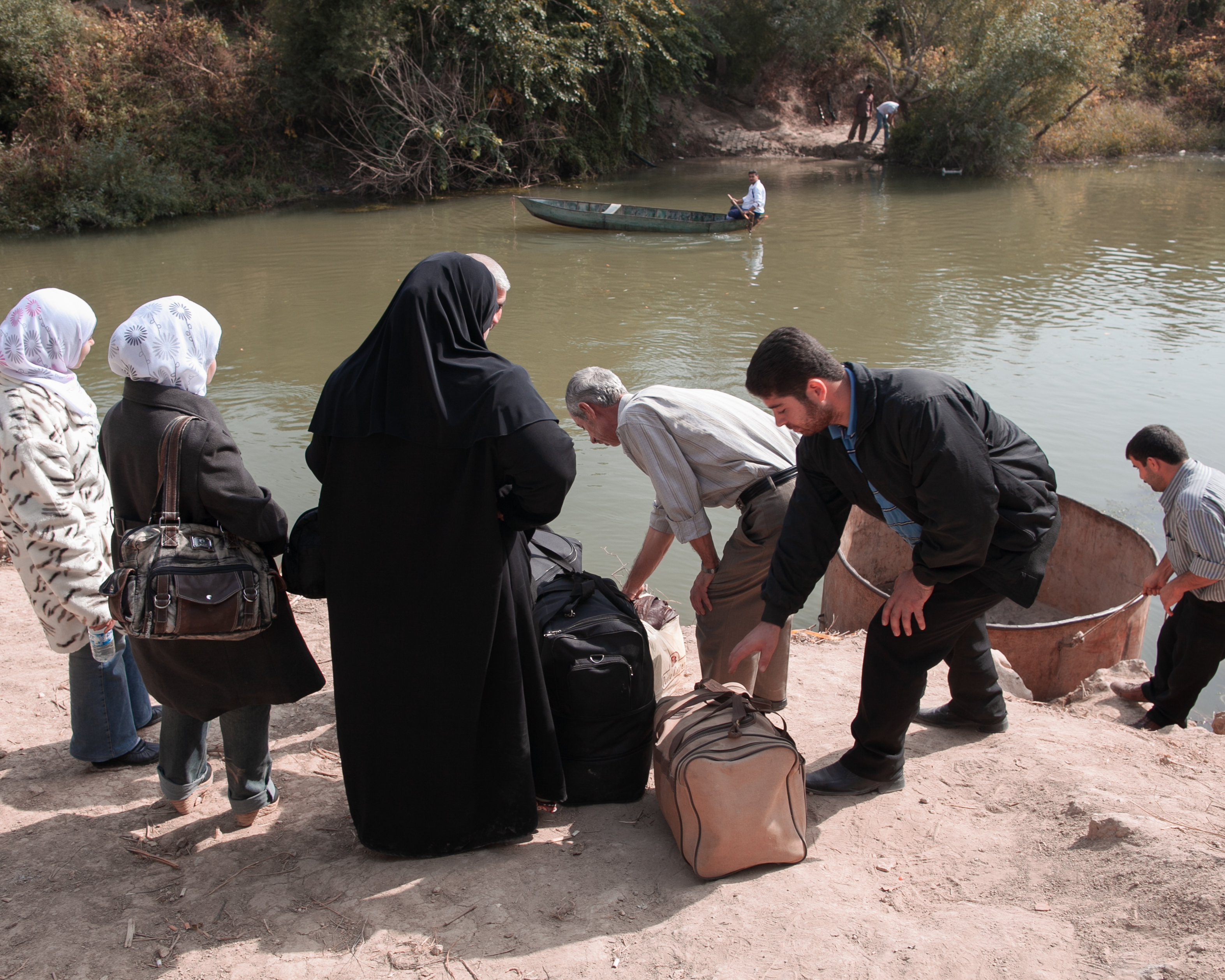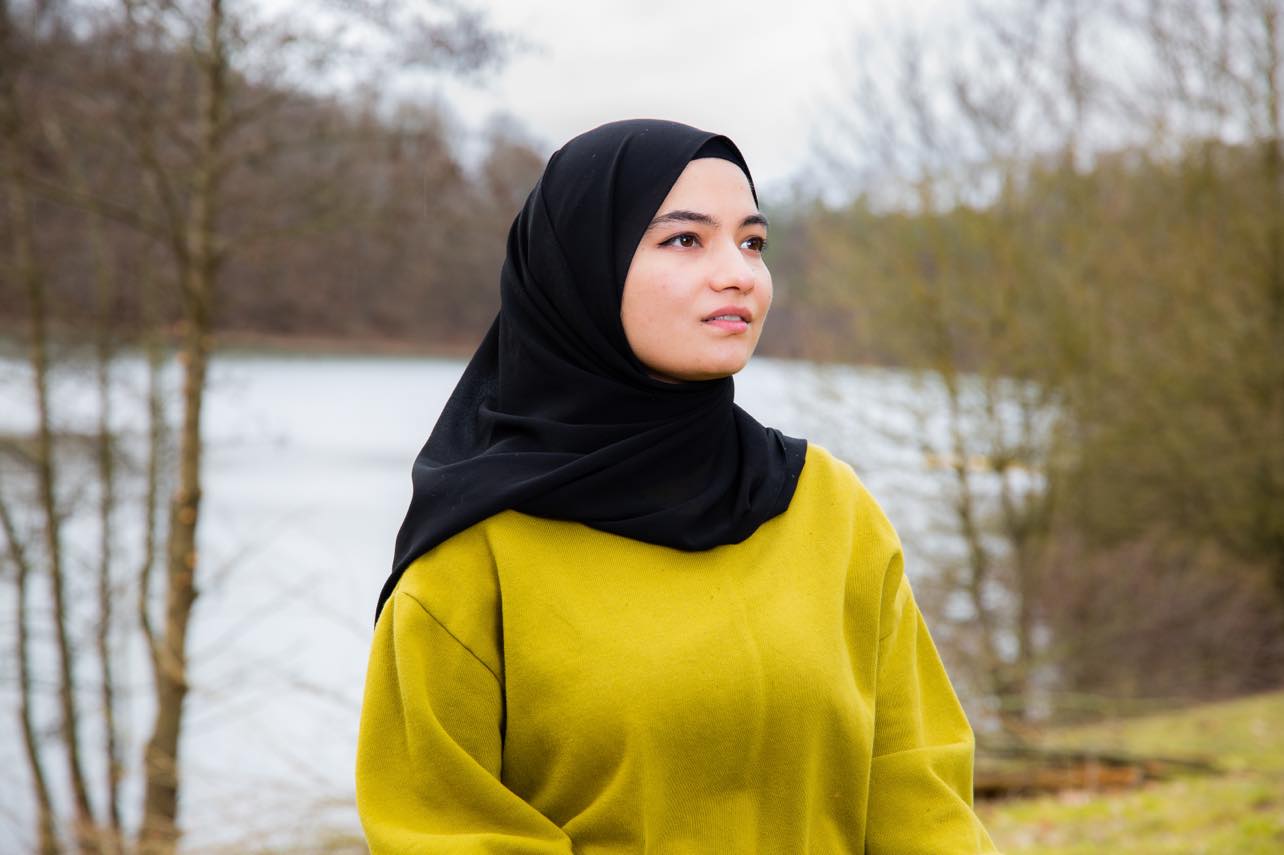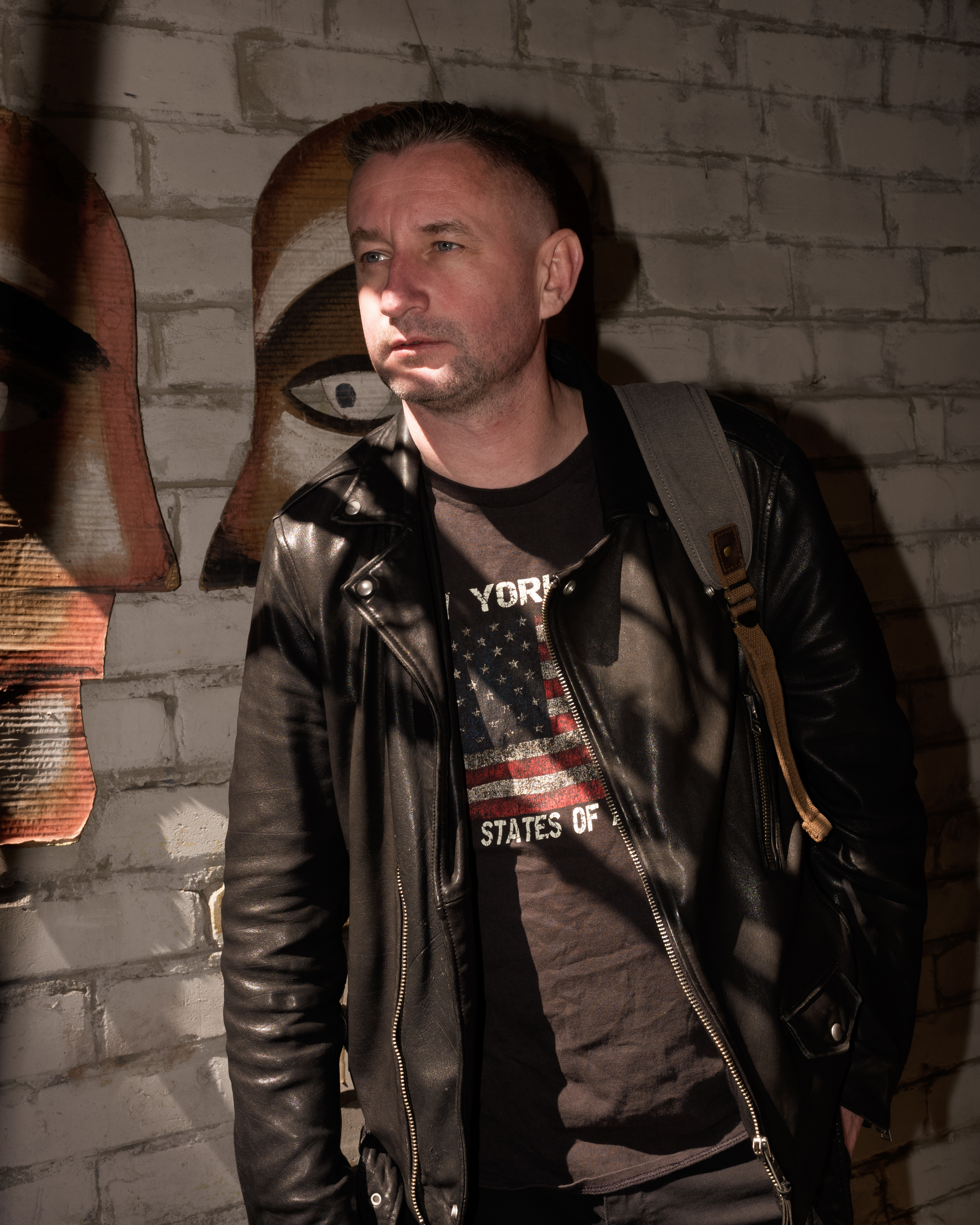Ahmad is a young Syrian. He had envisioned studying and living in Syria, but his plans and dreams were dashed by years-long war. Conflict, ever-present danger, and financial insecurity forced him to separate from his family and escape to Europe. Read his story.
My name is Ahmad. As many know, it is a common name in the Middle East. But who cares? What does it matter? I had the same reaction when my grandfather once told me: “Grandson, everything in life can be gained or lost—except your name. It is up to you to make it a good or bad name.”
At the time, I did not pay any attention to the meaning of his words. Today, I lost my grandfather, and I understood what he meant.
In 2013, when the war had already been going on for two years, I applied to university. I lost my best friends during the same period. Some died, others disappeared; mostly they fled the country. My financial situation was not good, so I had to stay in Syria and scrape together living expenses. Leaving the country in a legal way was impossible because there were no embassy services available. The only way to flee was by paying a smuggler. I did not have the money for that.
Everything changed in 2014. The revolution degenerated into a heinous, violent war. The crisis in my country caused housing prices and the cost of food to skyrocket. Millions lost their homes and jobs because they were displaced, moving from city to city seeking some sort of safety. We watched and counted so many people dying as bombs fell. Thousands of people, including women and children, were imprisoned for no reason. Many cities were blockaded, beginning with electricity and water cuts lasting for months.
That year, we saw things we had only read about in history books about the Second World War. The Syrian Civil War brought the army into our streets. There were many checkpoints, with soldiers carrying guns. Tanks were targeting defenseless protestors, shooting them down. A few months later, the war spiraled into a civil and international conflict. Soldiers from all over the world descended on my country. I saw dead bodies in the streets and there was blood everywhere.
I tried to keep my head down while going to university. Even making eye contact with soldiers could cause you trouble and land you a night in jail. I passed the first year of my studies in agricultural engineering (now I cannot remember a single thing from any of my classes) even though my head wasn’t focused on my studies but on the number of dead victims and which building might be bombed next. Reaching the university became more difficult with each passing day. The number of checkpoints increased, and they were manned by callous soldiers with no principles at all. One day, while they were checking my identity, the following situation occurred:
Soldier: “So you are Sunni.”
Me: “Yes, sir. Is there any problem?”
Soldier: “Get off the bus.”
I was asked many questions, such as: “Which city did you come from?” All I remember is the blinding harshness of his slap after I answered: “Syria, sir.” I felt my answer was clear and fair. I am from Syria, the country where we used to be one, in which we were never asked about religion or race. Syria is the farmers, teachers, doctors, the ordinary people. After that, the soldier told me to return to the bus and leave. I understood his goal. His intention was to send me off with fear in my heart, and in that he succeeded.
Photo: Agata Grzybowska
One morning, a few months later, I was on my way to university after breakfast when I had a premonition that something bad was going to happen. I was heading to the bus station when, ten minutes after setting out, I realized that I had forgotten my wallet at home. Without my wallet, I wouldn’t be able to take the bus. Instead of returning home to pick it up, I decided to walk to the university. On my way there I kicked myself for forgetting the wallet because the walk on foot was forty minutes. However, can you believe what had happened? The student bus was bombed. More than forty students lost their lives and hundreds others were injured. It was a nightmare. Ambulances, police, screaming voices and burning bodies. These were students. Can you tell me what sins we committed to have to face this at our young age? We were supposed to be teenagers, chilling and having parties like we dreamed about in high school. What sin did we commit to be stripped of our youth? What sin did we commit to have to bear such burdens so young?
Scared and crying, I began texting friends, trying to explain what had just happened. Hours later, I called people I knew who had already made it to Europe safely. I asked them: “Hey, guys, I have no money right now, can you help me?” And: “How much does it cost to reach where you are?”
Later on, when I had some money, I decided it was time to flee like the others. However, this was not a straightforward decision. On the contrary. How can you leave the place where you grew up and know so many people? How can you just part with your memories and go someplace where you do not even speak the language?
Unfortunately, Syria was not a safe country to live in any more.
After many calls and contacts, I had my journey planned out. Note that although I was fleeing my country, I still called it a “journey.” I was trying to make myself believe everything would be okay in the end. I felt that I would be back, one day soon. Back to see my grandparents, my town, the house I grew up in.
I applied for a passport, the only thing that could prove my nationality. This passport was the last thing I received from my country.
When it was time to pack my bags and any essentials, I decided to bring nothing but the one thing that could never be taken from me or lost: my NAME.
“I love you all. I am leaving.” I said goodbye to my family at midnight. I remember telling them that I would be in Europe the following week, that’s all. It was not until that moment that my family told me my eleven-year-old brother would be joining me. Even though I was only nineteen, and did not understand the responsibility and risk taking care of my little brother entailed, I agreed to take him with me. I promised my family we would update them during the journey.
The first stage, to the Turkish border, took sixteen hours. We paid a great deal of money to the smugglers to get us from Damascus to the border with Turkey.
My brother and I made it to the northern Syrian city of Idlib, which is where I grew up. We used to call Idlib “The Green City,” since it was famous for its olive trees. The city is also known for its farmers and cows, and appreciated for the simplicity of the people who suffer and celebrate together.
Idlib was the last place where I was viewed as a Syrian citizen. The moment I crossed the border into Turkey, the world assigned me the status of “refugee.”
It was painfully cold when we crossed the Syrian border into Turkey, at the beginning of 2016. The weather was brutal, the wind. The smuggler instructed me to meet him to discuss his fee and how we would cross. I had so many questions… Should I trust him? Is he the right person? But I had lost everything already; with nothing left, I felt I had nothing more to lose. I met the smuggler. He told me we would make the first attempt at crossing that night. He was not very encouraging: “Nothing is promised. Maybe you will make it, maybe you will have to try again and again.” I kept thinking about how Europe was a safer place. How I had my education and in Europe they respect humanity. How there I would find a normal life and live in peace.
After my first unsuccessful try, I went back the next day to ask the smuggler how he could do this to us. We were already exhausted, but the smuggler led us up a mountain to try again. This time we paid extra. Along the way, the smuggler’s partners had put out lights to guide us along the correct route. After walking thirty-five kilometers, we made it to Turkey!
We were totally exhausted. Needing to rest, we asked around for a hotel that we could rely on not to report us to the police. If they caught us, they would send us back to Syria. We finally found a mosque where we could sleep. It did not feel safe because the mafia and the smugglers were there, but I knew no one would arrest us in a holy place. We stayed at the mosque for more than a week, without a shower or clean clothes. All that week, I called the smuggler to find out when we would make our first attempt to cross the sea to Greece. He told me the weather was bad, the sea was rough. He even said it would “swallow” me and my brother. It was frustrating to hear this, but we waited.
One night, around midnight, we took a taxi to a beach the smuggler had told me about. When we arrived there, we saw hundreds of people getting into a boat. I called the smuggler and he told me to return to Izmir. There was no way we were going to do that! There were many boats, nine leaving at the same time. I told my brother our only chance was to get on one of the boats. It was dark and the beach was crowded with people. One by one the smugglers would tell the people which boat to board. We listened closely so we could remember the name of one of the boats, because we knew the smuggler would ask us for it before letting us board. We finally made it onto the boat, feeling a surge of relief and happiness. But the feeling didn’t last long, for a hundred meters out the boat’s engine failed. Luckily, the crew managed to obtain a new engine and we made it across the Aegean Sea. Nine boats departed that night but only three made it to Greece. The other six boats capsized, and the people aboard drowned.
I wasn’t scared about crossing the sea without knowing how to swim. It was taking care of my brother that was the hardest thing. I still hear him screaming in my ear: “Ahmad, we are drowning!” Because of the big waves, the boat was going wildly up and down and water soaked his bottom. How could I, scared as I was, calm down a child in such a situation? We knew that thousands of people had already drowned in the sea.
The hardest thing I faced while living in camps for two years was that the way I was seen, I no longer existed as Ahmad but as a file number in some office.
In Athens, there was a squat called Jasmine School, a housing collective that was home to 400 people living independently with the support of volunteers. We started a small class to teach kids and adults English and Arabic. My English was better, so I helped as the assistant to an American teacher named Kim, translating and preparing the class. Eventually I became the Arabic teacher. The kids and adults really loved the classes, partly because Kim used to bring ice cream or sweets. (Even as adults, a child lives inside each of us.) My English improved during this time, and I studied hard. After a month, Kim encouraged me to seek a paid job working with an NGO. In my opinion, my English still was not good enough and I did not have the background to earn a salary. She told me that Doctors Without Borders was looking for ten workers and offered to help write my CV. It was only one page, not much, but it was the first step toward my new life.
Within a week I had applied for the job. A few days later, I was called in for an interview. I still felt unqualified, but I went, read a bit about the job of health promoter, and waited to hear my name called. I met with a manager from Belgium for about an hour before she told me the job was mine! When she asked for my ID or passport, my heart leapt. With a big smile on my face, I gave her my Syrian passport and my khartia—the document I received the day I registered in Greece. Unfortunately, she told me they couldn’t use this documentation to draft a contract, and that I would also need a bank account to work there. I had felt so encouraged, but suddenly this great opportunity was slipping away. Why didn’t people see that I exist? No matter where I went or what I did, they always asked for my papers. Early on I had promised myself to never give up or let my soul fade until death, so I reminded myself that this wasn’t the end. I had to be satisfied with the knowledge that I had made it. I had gotten the job. But I know the manager saw the sadness on my face. Without another word, I left.
The next day, to my surprise, the manager called to ask me to come back. She told me that it wasn’t paperwork which made me human. She could see my worth and told me I had proved to her that I deserved the job. So I did exist! She had to adapt the contract to make me a volunteer earning less pay, but it was official. I signed the contract for three months.
And all at once, the words of my grandfather came back to me: I exist as Ahmad and that is my name. I am responsible for it. I want to work hard to make it a good name, but working hard is not enough unless you have a goal. Without direction you’ll walk nowhere; you can’t even ask for help from others until you know your goal, your destination, your dream.
My heart was in turmoil. I was fighting back tears. If you think back over your life, you can relate at some point. We all experience moments of suffering. Before the war started, I had always wondered what kept people going in the darkest of times. What was their secret? How could they still pursue their dreams even when everything was completely hopeless around them? How can people keep saying Alhamdulillah, “Praise be to God,” when they feel crushed and lack even the most basic human rights and necessities? Even during my journey, I have heard many people say it, in Turkey and Greece, when waiting to cross the sea.
I believe that the purpose of suffering is to bring the real heroes inside of us to the surface. Everyone has a hero inside. Not the ones from Hollywood with fancy costumes, superpowers, and fan clubs, but the unique hero inside of you that is able to get you through the hard times, that makes you the unique person you are, giving you the strength to overcome setbacks. This doesn’t mean that there aren’t times when you cry yourself to sleep at night. We live in a cruel and bloody world, and we have to deal with disappointments and obstacles. But you will be able to rise to try again. I hope one day you’ll be able to feel grateful for the suffering as well. That you will be able to embrace it.
Ahmad Al-Sadeq
The Netherlands
Photo: Agata Grzybowska




